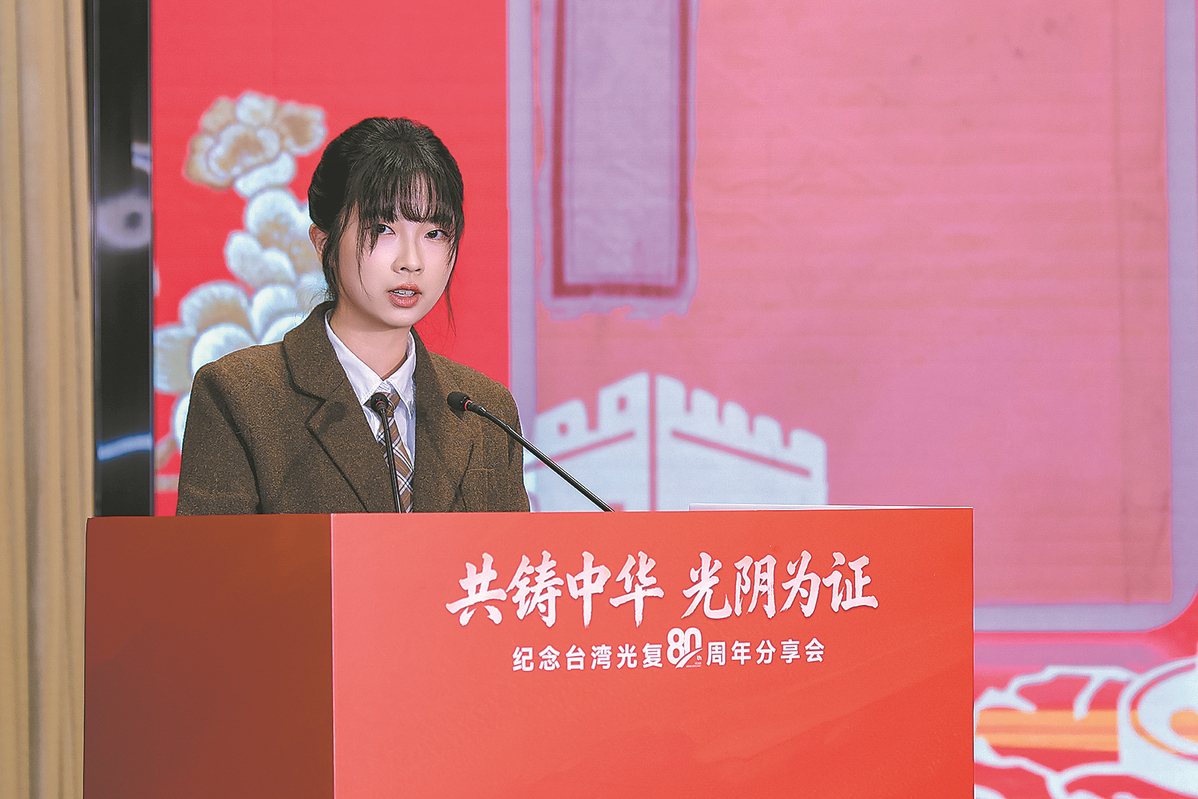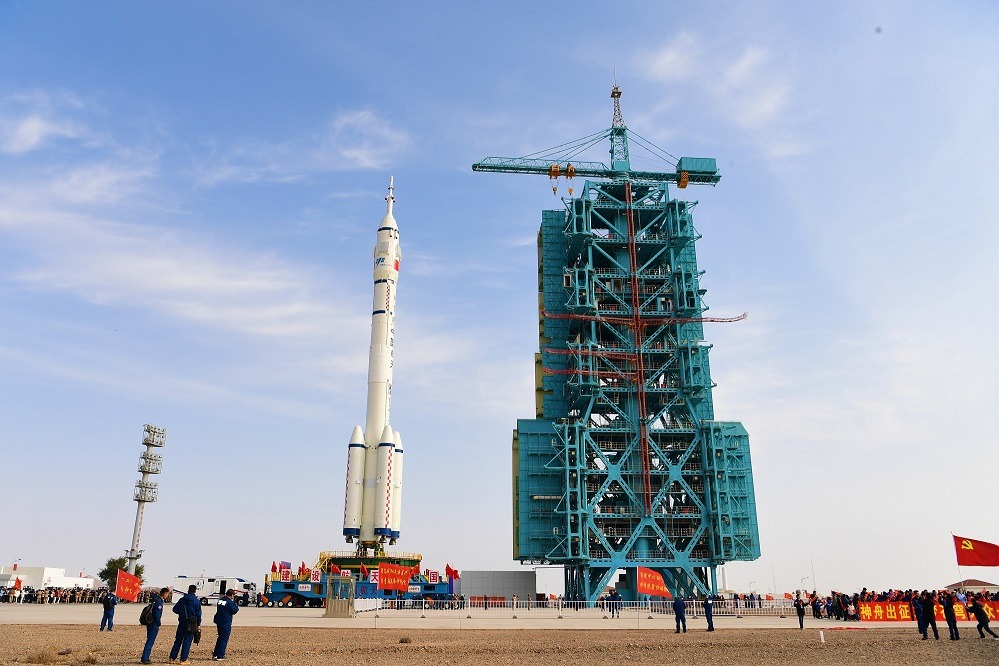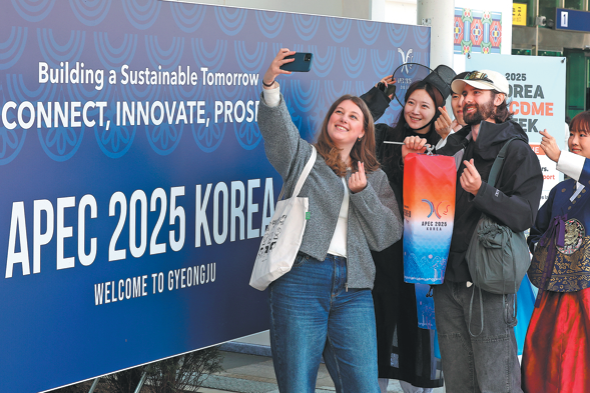Young people carry torch of reunification

Editor's note: At a commemorative event held at the Taiwan Guild Hall in Beijing on Oct 21 to mark the 80th anniversary of Taiwan's restoration to China, four young representatives from Taiwan shared their reflections on this historical period.

During World War II, Japan's imperial subject policies in Taiwan forced Taiwan residents to change their names and banned the Chinese language, aiming to sever ties with Chinese culture and highlighting the cruelty of colonization. Taiwan society responded in varied ways; some adapted, but most resisted in different forms.
My family is an example. While many details are lost, my elders recount that my mother's side originally hailed from Quanzhou, Fujian province, moving to Taiwan during the Ming (1368-1644) and Qing (1644-1911) dynasties and settling in the Yunlin Plain for over a century. My great-grandfather, a resilient family elder and local gentry leader born in the late Qing Dynasty, lived through the Japanese occupation most of his life. He steadfastly wore traditional clothing and kept his long braid, resisting Japanese influence. He preserved the ancestral three-section compound, hall and genealogy, viewing them as the family's root and soul, and quietly awaited the end of colonial rule.
Reflecting on history through family stories, I've gained respect and understanding for my great-grandfather, whom I never met. This awareness also underscores the mission our generation carries — peace and unity.
























